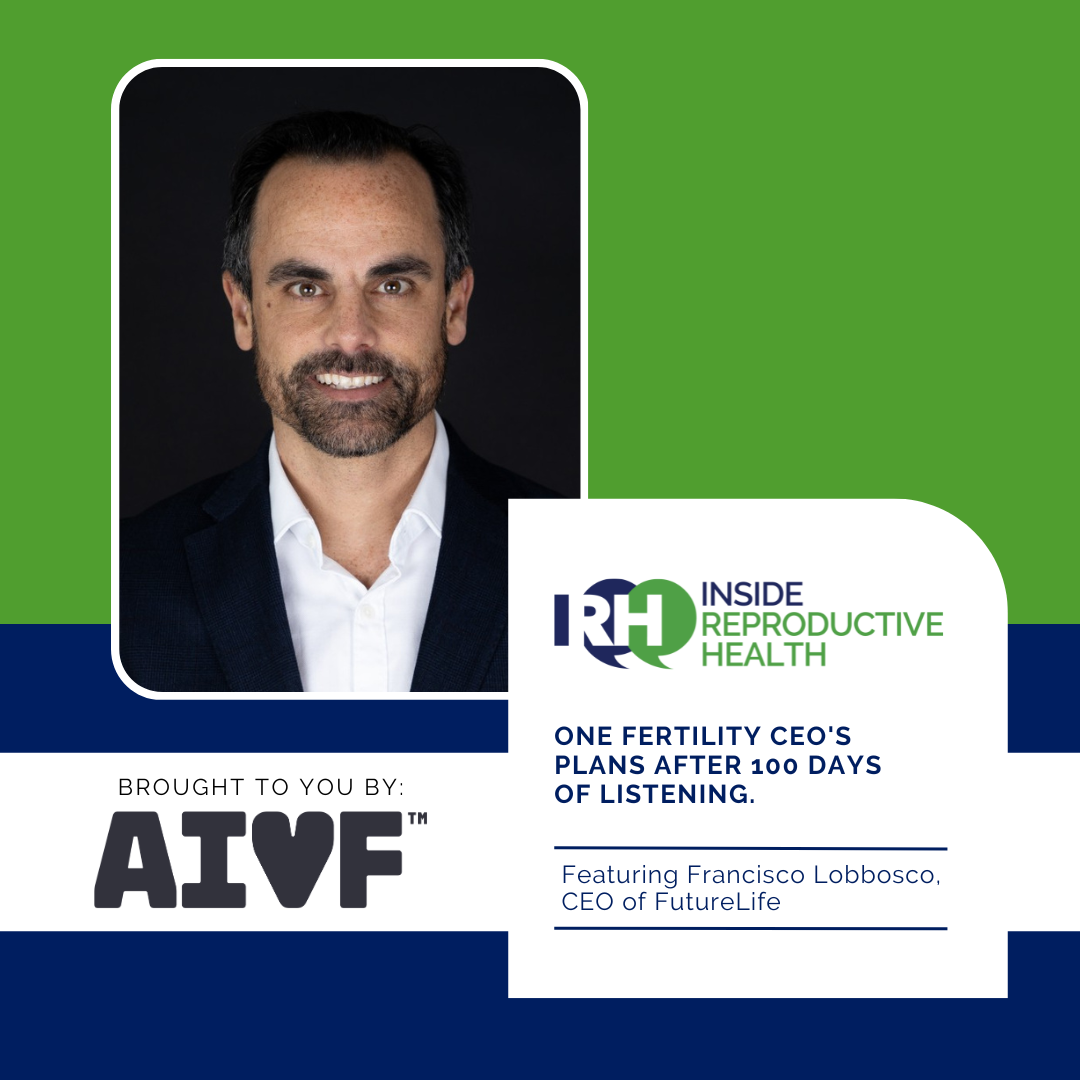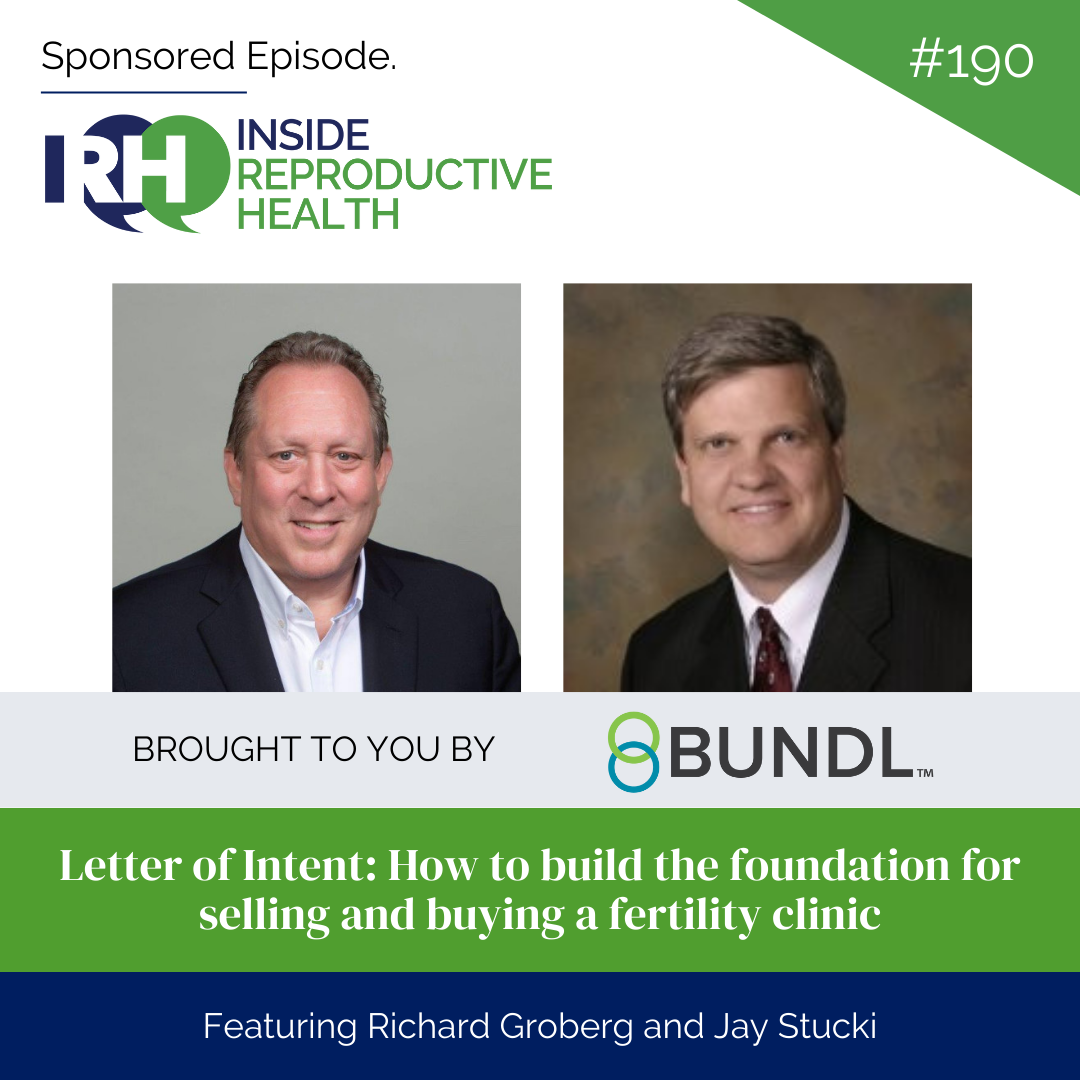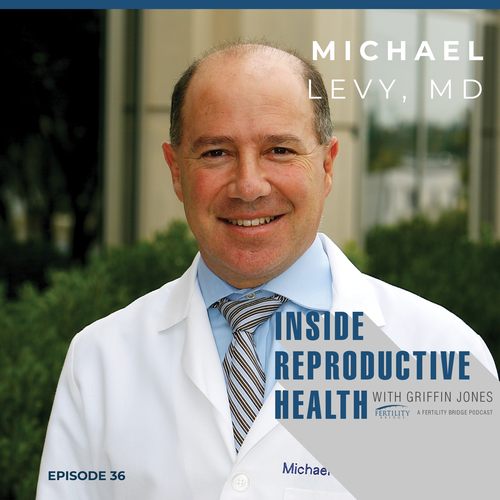Venture Capital & Private Equity in Fertility
Boston IVF CEO David Stern describes some of the challenges of private equity backed businesses. Griffin grills David on the models of Boston IVF and their parent companies.
Listen to the latest episode of Inside Reproductive Health to hear
David Stern talk about how little of their own money private equity firms typically use
Griffin press David Stern on whether business decisions and clinical decisions are always separated
David Stern and Griffin discuss the meaning of “trapped equity”
What happens when Private Equity doesn’t flip at the right time, who pays for claw back provisions, and what about those hidden fees?
David Stern talk about Boston IVF’s model for partnership
On Inside Reproductive Health this week, Griffin Jones chats with Rescripted founders, Abby Mercado and Kristyn Hodgdon about their business model, how it came to be, and what risks they have in this space. How has Rescripted’s capital been invested? How do they keep content fresh? Will they survive and thrive in this space, even though so many others before them have failed- despite having massive capital? Listen now and join the conversation, with Griffin Jones on Inside Reproductive Health.
Listen to hear:
Griffin point out that pharmacies missed the boat- they could’ve seized the direct to consumer route, but did not.
Abby and Kristyn break down their business model, why it works, and what they won’t allow in their space.
Griffin discuss raisers of capital who had the cash, but ultimately failed, and question whether or not Rescripted has what it takes to beat the odds.
Abby and Kristyn explain why, and how, Rescripted was founded, and where it hopes to go in the future.
Understanding the past can often help create clarity for the future. Many industries are changing rapidly these days and Fertility practices are not immune. Changes from scientific advancements, culture, and consumers all play a role in the landscape shift of the industry. When you add technology to the mix, advancements start snowballing rapidly.
This week on Inside Reproductive Health I interviewed Dr. Robert Stillman, a Board Certified Reproductive Endocrinology and Fertility subspecialist with over 40 years of experience. We recount his experience from beginning to the present and what he deems will be important in the future. He has direct experience with the integration of private equity capital into fertility practice and has led trends in practice financing, technology (e.g. AI, genetic testing, egg freezing), physician and staff recruitment, retainment, compensation, partnership tract, and retirement paradigms.
In this episode, we talk about Dr. Stillman’s insight into the industry and big trends we are seeing including how Artificial Intelligence is and will continue to shift the industry. We also talk about:
How Private Equity effects Fertility Practice
What changes have happened in the Fertility field over the last 20 years
How has consolidation and expansion has affected the REI landscape
How Bob was able to successfully work with the academic centers
To learn more about our Goal and Competitive Diagnostic, visit us at FertilityBridge.com.
We’ve seen it happen all over the country and you’ve probably seen it in your backyard--clinics are merging and consolidating, absorbing the market share. But with the fall of Integramed in the spring of 2020 and dozens of clinics left in the lurch, mergers and consolidations started to appear more risky.
On this episode of Inside Reproductive Health, Griffin talks to Mark Segal, CEO of Shady Grove Fertility and CEO of the newly-formed US Fertility, a fertility group made up of Shady Grove Fertility, IVF Florida, RSC of the Bay Area, and FCI in Chicago. Despite forming in a pandemic and after the Integramed news, US Fertility’s partnerships thrive--and are geared to keep growing, especially in the next 18 months. So what does that mean for the hundreds of smaller clinics that continue to remain in the field?
Are all clinic owners entrepreneurs? Do all physician-owners really have what it takes to successfully run and grow a private practice?
We’ve talked about joining networks, understanding private equity, and entrepreneurship a lot on this podcast, but usually we are talking about high-level practices to get patients in the door and help them convert to treatment. On this episode of Inside Reproductive Health, we get a new perspective, one that focuses on entrepreneurship, best business practices, and what it really takes to grow in our field.
Dr. Andrew Meikle is the Founder and CEO of The Fertility Partners, a company based in Canada that aims to empower and enable fertility clinics by providing collaboration and strategic expertise. Through his experience in other healthcare fields and his current work in the fertility field, Dr. Meikle shares his thoughts on clinic ownership and entrepreneurship, what fertility networks are looking for, and important things to keep in mind when considering joining private equity.
After her own experience with fertility testing, Afton Vechery set out to make the testing process easier for millions of women across the country looking for a better understanding of their reproductive health. From day one, Modern Fertility aimed to provide quality, peer-reviewed information to empower young women to have the knowledge they need to make more informed decisions about her fertility.
On this episode of Inside Reproductive Health, Afton shares the Modern Fertility story. She shares how she brought her vision to life, including how she has been able to raise funds from Venture Capital companies. Griffin and Afton also discuss how Modern Fertility hopes to work with fertility clinics to improve the patient experience across the board.
As we head into a new (and hopefully better) year, we wanted to take a look back on all the wonderful, inspiring guests we had on Inside Reproductive Health throughout the year. We talked about affordable care, mentoring new staff in the clinic and the lab. We learned about independent clinics and how they thrive despite heavy network competition, networks and how they continue to provide personalized care even after becoming publicly-owned. We talked about reducing physician burnout and increasing patient communication. And so much more.
On this episode of Inside Reproductive Health, we highlighted your favorite episodes and compiled the best clips into one episode for you to enjoy as 2020 wraps up.
Venture Capital has been slowly making its way into the field over the last several years. But just what is it looking to improve?
On this episode of Inside Reproductive Health, Griffin talks to Dr. David Sable, a retired REI and current serial investor in biotechnology and other companies that aim to make the field more efficient and accessible by the patients we aim to treat. They discuss what it is going to take to scale to a million cycles in the US and 15 million around the world. From lessons from oncology to bottlenecks holding us back, Dr. Sable shares his biggest hopes for the fertility field and what entrepreneurs need to do to get it to the next level.
Dr. David Sable co-founded and served as director of the Institute for Reproductive Medicine and Science at Saint Barnabas Medical Center in New Jersey, was founder of Assisted Reproductive Medical Technologies, and was co-founder of Reprogenetics. In addition to serving as a reproductive endocrinologist, Dr. Sable also sought to help the field as a whole by finding investors to create new technology to increase the amount of people served by the field. Today, Dr. Sable is a life sciences portfolio manager, an adjunct at Columbia University, and serves as director, advisor, and board member for a wide range of biotech and advocacy organizations.
Learn more about Dr. David Sable at www.dbsable.com or find him on Twitter @dbsable.
On this episode of Inside Reproductive Health, Griffin talks to Dr. John Crochet of the Center of Reproductive Medicine. CoRM is an independently-owned clinic based in Houston, Texas, one of the largest markets in the field. In recent years, PE-owned and PE-backed clinics have started to take over the city, making the independent clinic almost obsolete… or have they?
Together, we discuss how the Center of Reproductive Medicine continues to thrive despite the money being funneled into their competitors in the market. From how they hire new docs to their philosophy on patient experience, we hear it all.
Dr. John Crochet trained in Reproductive Endocrinology and Infertility at Duke University and Obstetrics and Gynecology at the University of Texas. Originally from Texas, Dr. Crochet went back to his roots, joining the Center of Reproductive Medicine in 2012. As an REI, Dr. Crochet has a goal of providing personalized care and an evidence-based approach to each family hoping to expand.
Despite busy schedules taking care of patients and often running clinics themselves, it’s not uncommon to see doctors getting involved in ventures outside of their clinic’s four walls. From investing in pharmacies to serving as medical directors for new ART companies to starting software companies, REIs can be found doing a lot. No matter what the venture is, there is always the potential for creating a conflict of interest. So how do doctors draw the line? How are they able to ensure they are keeping the patient’s best interest at heart, and not just making decisions that are beneficial to the physician?
On this episode of Inside Reproductive Health, Griffin talks to Dr. Kevin Doody. Dr. Doody founded Care Fertility in Fort Worth, Texas with his wife, Kathy, in 1989. He is also co-creator of Effortless IVF, which is a new ART technology treatment that uses INVOcells. He is also the Chief Scientist of Global Fertility and Genetics.
Together, Griffin and Dr. Doody talk about entrepreneurship in the fertility field and then, we dig into conflicts of interest in the field: what is acceptable and what isn’t.
Wall Street has been moving into healthcare for several years and it has been making its mark in the fertility field. Some practices have taken advantage of the influx of money in the field, but several haven’t. But several docs have some concerns, specifically when it comes to decision making.
Do private equity firms or people who invest in fertility clinics and businesses really have the best patient care in mind?
On this episode of Inside Reproductive Health, Griffin talks to Dr. Francisco Arredondo, founder of RMA of Texas and author of his upcoming book, MedikalPreneur. Together, we dive into the pros and cons of money entering our field in the form of private equity.
HRC Fertility is one of the largest providers of Assisted Reproductive Care in the United States. Started in Southern California in 1988, the clinic has grown immensely, serving thousands of patients every year. In 2017, HRC took their success globally, joining forces with Jinxin Fertility and listing on the Hong Kong Exchange. Despite the booming expansion, HRC never forgot its roots: providing quality, personal care for its patients and giving physicians the opportunity to have full control of patient treatment.
On this episode of Inside Reproductive Health, Griffin spoke with Dr. Bradford Kolb, President of HRC Fertility. Dr. Kolb joined the practice in 2001 and worked through the IPO process with his partners, making HRC what it is today. Not only did we talk about the process of going public, but more importantly, we talked about how HRC was able to maintain their patient and physician culture in this rapid phase of growth. He shares the structure of the clinic and what they do to maintain a small practice feel for such a large organization. Plus, Dr. Kolb offers advice for young fellows and physicians entering the world of Reproductive Medicine and what they can do to be successful in the field from both a personal and professional standpoint.
Entering the fertility space outside of owning a clinic is challenging. Entering the space as a tech company, well, that’s a whole other story. On this episode of Inside Reproductive Health, Griffin spoke with Jeff Issner and Taylor Stein, co-founders of EngagedMD. Together, they developed software that helps to educate patients and provide informed consent in clinics across the country. They share the story of how they got started in the fertility space, from idea to execution, without any commercial debt.
Jeff and Taylor also talk about how they got doctors and clinics on board before their software was even fully developed. Plus, they discuss the ever-challenging hiring process and what they do to make sure they are getting the best people on board.
Boston IVF, one of the largest IVF centers in the nation and one of the first free-standing clinics in the country. What started as an independent clinic grew into one with a well-respected academic affiliation, and now has partnered with a worldwide hospital group. Through it all, their mission remained the same: bring state of the art technology to a patient-centered outpatient clinic. On this episode of Inside Reproductive Health, I talk to one of the founders of Boston IVF, Dr. Michael Alper. Dr. Alper shares the history of Boston IVF, but more importantly how they grew into what they are today. His story teaches important lessons to any doctor-owned clinic curious about academic affiliations or partnering with outside equity groups.
There’s a challenge in finding the balance between keeping both your staff and patients happy. On this episode of Inside Reproductive Health, Griffin gets Dr. Peter Klatsky’s take on managing everyone’s satisfaction while providing a new standard of care. Working with his partners at Spring Fertility in California, their goal is to provide their patients a level of service that isn’t seen anywhere else, all while keeping their employees happy and in for the long haul.
Building and growing an IVF practice can have numerous benefits for both the owners and the patients they serve. But growth can sometimes lead to loss of patient-focused care. On this episode, Griffin Jones, CEO of Fertility Bridge and host of Inside Reproductive Health, talks to Dr. Alan Copperman, Co-Founder and Medical Director of RMA of New York, one of the nation’s largest IVF centers. Together, they discuss how RMA of New York was able to retain their patient-focused culture while exponentially growing the practice. Their approach to delegating important tasks, understanding the “new” patient, and finding the right, compassionate employees has greatly contributed to their success today.
To learn more about Dr. Copperman and Reproductive Medicine Associates of New York, visit their website at https://www.rmany.com/.
Visit fertilitybridge.com to learn more about what Griffin and his team can do for your fertility clinic and take the first step in building your marketing system with the Goal and Competitive Diagnostic.
While outcomes are so important in the field of fertility, the patient journey can easily be lost. After going through his own journey, TJ Farnsworth founded Inception Fertility, a group of fertility practices across the country hoping to provide positive experiences for their patients. On this episode of Inside Reproductive Health, Griffin and TJ discuss the culture of Inception Fertility and how empowering your employees to be champions for your patients can have a meaningful impact on their experience. TJ also shares his thoughts on increasing collaboration between fertility clinics across the country and how that can mean success for everyone.
Deciding to expand your practice, either by acquisition or starting new, is an exciting time. But, adding new staff, physicians, and equity partners can come with a handful of problems. On this episode of Inside Reproductive Health, Griffin Jones, CEO of Fertility Bridge, talks to Dr. Michael Levy, IVF Director and President of Shady Grove Fertility. Shady Grove Fertility is the largest fertility group in America and has over 25 equity partners and almost 1000 employees. Griffin and Dr. Levy discuss the implication of having such a large staff base and just how they manage it, all while keeping the patient at the forefront of their culture.
Growing your practice is exciting and adding in new Physician Partners can mean a lot for both your business and your patients. But adding to your group of decision makers can be intimidating. In this episode, Griffin Jones talks to Dr. Louis Weckstein, Medical and IVF Director and Managing Partner at the Reproductive Science Center of the Bay Area in San Francisco. Dr. Weckstein discusses the importance of building consensus amongst Managing Physicians and three simple ways to help facilitate easier decision making.
- Partnership and Recruitment 49
- Physician Leadership 1
- Practice Ownership 1
- Training & Education 8
- Strategy 66
- Fertility Practice Management 104
- CEO and C Suite 8
- Fertility Patient Relations 99
- Technological Innovation 44
- Fertility Genetics 1
- IVF Lab 21
- International Care 18
- Private Equity and Venture Capital 33
- Technology 8
- Compliance 32
- Fertility Marketing 87
- Nursing Management 10
- COVID-19 15
Subscribe to get the latest updates and episodes delivered to your inbox.

































